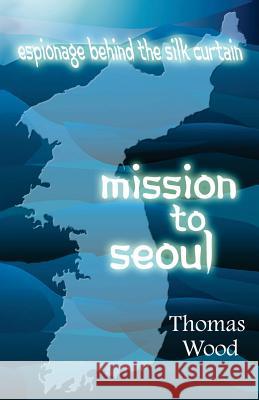Mission to Seoul » książka
Mission to Seoul
ISBN-13: 9780985534202 / Angielski / Miękka / 2012 / 166 str.
During the 1970s the Republic of Korea (South Korea) was a strange mixture of modern industry and medieval traditions, of Christianity and Shamanism, of a democratic facade masking a brutal totalitarian dictatorship. The dictator's wife was assassinated by his enemies, and the role of First Lady fell to the dictator's daughter. No one was free of suspicion; no one escaped punishment for disobedience. There were several American families living in the R.O.K. during that time, descendants of the first missionaries and businessmen to break through the Silk Curtain and settle in what had been until the late nineteenth century The Hermit Kingdom. These people were treated with respect but were under constant surveillance to make sure they did not threaten the regime. Their names, like the names of the Koreans integral to this story, are altered for their protection. Thomas Wood, a Peace Corps volunteer who specialized in hydraulic engineering, who now works for a prominent American company, took careful notes on the things he heard and saw while he worked in the R.O.K, from 1974-1977. This novel, featuring barely disguised characters participating in thinly veiled events, captures the essence of those days. Boyce Mann's journey back to the land of his birth, what he finds there, what happens to him there, represent a fiction that Thomas Wood calls "historical fantasy." His story may not have happened, but it did happen. You will find this novel as intriguing and fascinating as you did "The Year of Living Dangerously," and you will find that it touches you more deeply than that story because Boyce Mann is an American, not an Australian, and he faces his dangers not in a country like Indonesia, not well known to Americans, but in a country that has been military partners with the United States for over sixty years. Read this story carefully, read it with relish, read it for enlightenment about Koreans and about ourselves. Once you begin to read, you will not stop; and once you have finished it you will much more aware of the ambiguities of the international pageant."











